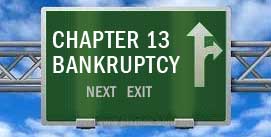
What is the “Good Faith” Requirement for Chapter 13 Bankruptcy?

“Good Faith” Requirement for Chapter 13 Bankruptcy
Chapter 13 bankruptcy allows you to repay debt obligations through an approved payment plan by the court. The “good faith” requirement is basically the debtor proposing they will make payments according to their payment schedule in “good faith” for the duration of the bankruptcy.
When you file, you and your trustee will agree on what payments will be made toward outstanding debt. This includes secured, unsecured and priority debts, such as back child support or unpaid income taxes. The court will make a final decision in approving your plan but any disposable income should be put directly toward unsecured creditor accounts. Disposable income is funds left over after paying necessary monthly expenses.
The court will approve your payment plan if it feels you will follow through in “good faith.” There are different views about what the court considers good faith, but the intention of the matter is the same. The court should sense the debtor honestly wants to complete their plan. This means debtors should be honest when reporting their assets and finances. Some courts may review where your disposable income is going to ensure you are acting in good faith.
If your trustee feels you are not in good faith with completing your plan, it could be rejected. Most likely, there could be a discrepancy in your monthly income such as receiving a raise from your employer that could affect your monthly average. Or, deductions for your income may be incorrect. There are certain issues that may prevent your plan from being approved but in most cases, you can review your situation with your trustee before presenting your plan to the court.

